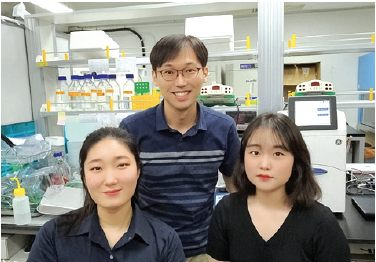
A research team led by Jeong Jae-hoon, a professor of the Department of Biological Sciences, discovered that Early Flowing 3 (ELF3), a prion-like protein found in plants, functions as a temperature sensor through phase separation. This research was completed with the research team of Leibniz Laboratory in Germany, Cambridge University in the United Kingdom (UK), and Grenoble University in France. They focused on how ELF3, an important component of the plant’s biological clock and a factor necessary for managing thermal responsiveness, perceives temperature change. At low temperatures, ELF3 forms a compound with other proteins, repressing the gene expression of plants. At high temperatures, however, the activity of ELF3 and compound formations decreases as liquid droplets including purified fragments of ELF3 are formed through phase separation. As a result, gene expression increases, which leads to faster growth and flowering. With lots of experiments and analysis, the research team proved that the phase separation of ELF3 is the mechanism that controls the thermal responsiveness of plants. Prof. Jeong said, “Crop yield is gradually decreasing due to global climate change and rising atmospheric temperatures. Prion-like proteins such as ELF3 can be an important target when breeding plant varieties that are resistant to high temperature.” This research was published in the renowned journal Nature on August 27th.
